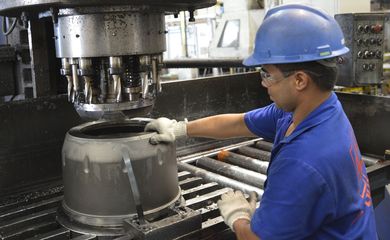Most Brazil industrial firms sought innovation in pandemic: Survey

The COVID-19 pandemic led large and medium-sized industrial companies to invest in innovation to boost competitiveness. The conclusion was drawn by a National Industry Confederation (CNI) survey released today (Oct. 19). According to the study, conducted by Institute FSB Pesquisa, eight in every ten industrial firms resorted to innovation and saw productivity and financial results rise.

The research aimed to gauge the perception of executives from Brazilian companies over the current innovation landscape in and out of the main companies active in the country. Executives were heard across 500 companies in September, and sampling was controlled by company size (large and medium) and sector.
Of the total of large and medium industrial companies, 88 percent implemented some sort of innovation during the COVID-19 pandemic in a bid to tackle the crisis brought by the sanitary conditions.
“Of all companies heard, 80 percent registered gains in productivity, competitiveness, and profits stemming from innovation. Another five percent saw two of these gains, two percent just one. Only one percent of Brazilian industrial firms innovated and saw no increase in results. The data show that a mere 13 percent of the executives interviewed said their companies did not innovate during the pandemic,” the CNI reported.
The survey also indicates that 51 percent of firms in industry did not have a specific sector directed at innovation. Furthermore, the figures reveal that 63 percent of the companies heard do not have a budget set for innovation, and 65 percent do not have professionals exclusively dedicated to changes.
Difficulties
The main causes behind the difficulties in changing during the pandemic, as per the research, are accessing financial resources from external sources (19%), instability in the external landscape (8%), hiring professionals (7%), the lack of qualified workforce (8%), and budget (6%).
Also found was that the pandemic made changes to companies’ production, with 67 percent of those interviewed saying that COVID-19 brought changes in the relationship with workers; 60 percent said they experienced changes in sales; 59 percent in the rapport with customers; 58 percent in management; 53 percent in production lines; 51 percent in the use of digital technology; and 44 percent in logistics.
Of those interviewed, 79 percent responded they were harmed by the pandemic, especially in the Northeast, which concentrated 93 percent of the positive answers. Fifty-eight percent of industrial organizations said that the chain of suppliers was the most hardly hit, followed by sales (40%) and production lines (23%).
At the same time, 20 percent of executives said they were little or not negatively affected by the pandemic at all. Of the total, 55 percent of companies stated they had an increase in gross revenues.
The study also showed that, for the coming three years, companies prioritize expanding total sales (49%), producing with lower costs (49%), producing with more efficiency (41%), expanding production (34%), and manufacturing new products (27%). To achieve such goals, among the sectors companies regard as crucial are rapport with customers (36%), processes (35%), and production (31%).


